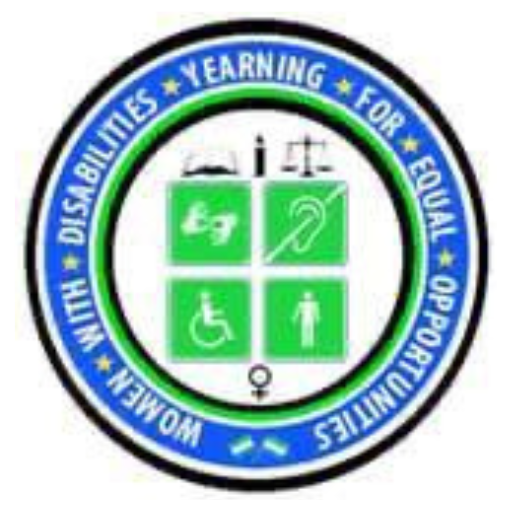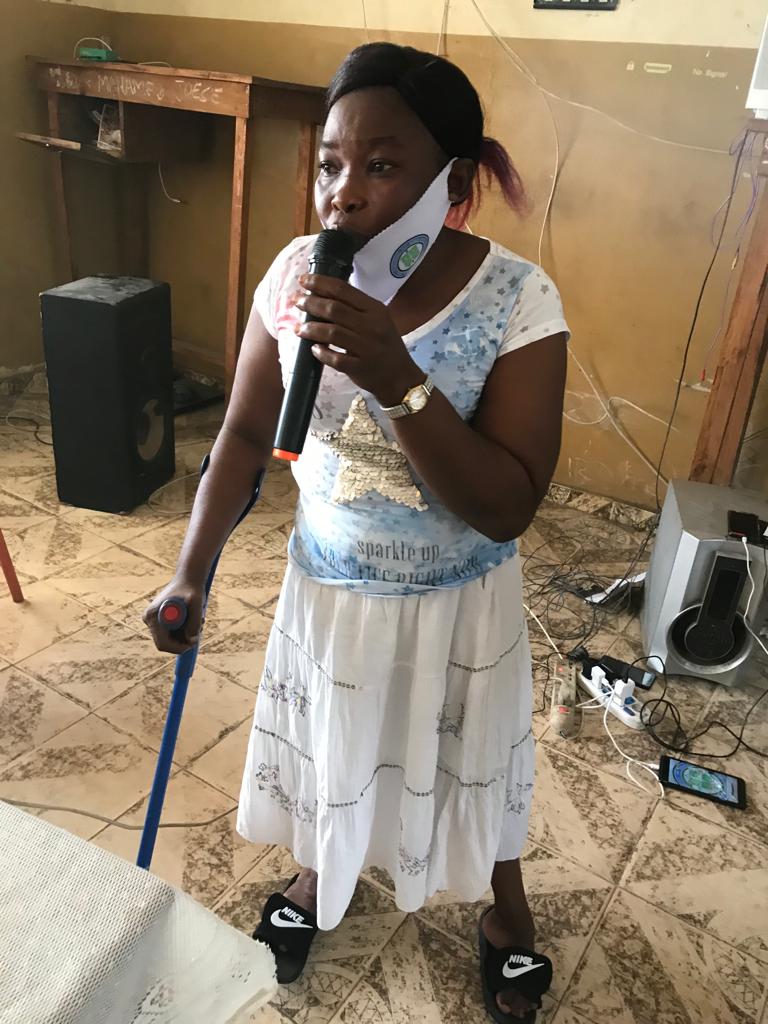Introduction:
The Women with Disabilities Empowerment Organization (WoDYEO) successfully implemented the project titled “Mobilizing Disabled Women Leaders for Inclusive Responses to Gender-based Violence during the COVID-19 Pandemic.” The project aimed to promote inclusive gender-based violence (GBV) services, build partnerships, raise awareness, and provide concrete steps to prevent and protect women and girls with disabilities during the COVID-19 pandemic.
Goals and Objectives:
The project had three main objectives: promoting inclusive GBV services and programming, building partnerships, and raising awareness of GBV issues. The organization strived to achieve these goals through a range of activities implemented across six districts in Sierra Leone.
Project Activities:
The project involved various activities, including a rapid assessment survey, virtual meetings, documentary video production, stakeholder engagements, radio talk shows, distribution of educational materials, and training workshops. Notably, these activities were designed to address the specific needs of persons with disabilities and their experiences with GBV during the pandemic.
Disaggregated Figures:
A total of 122 persons with disabilities were engaged during the project, with a breakdown by sex and disability category. The engagement covered men (38) and women (64) with disabilities, representing various categories such as polio, amputees, hearing-impaired, visually impaired, persons living with leprosy, persons with albinism, kyphosis, persons with epilepsy, and little people.
Participation of Non-Disability Organizations:
Throughout the project, non-disability organizations played a significant role, representing 54% of all participants and stakeholders engaged in the activities. The engagement aimed to sensitize and train non-disability organizations on issues related to persons with disabilities.
Accomplishments:
The project achieved several positive outcomes, including strengthened partnerships with organizations such as Rainbow Initiative and the Family Support Unit. Additionally, committees were established in each district to sensitize and address GBV issues in communities with a high density of persons with disabilities. A significant achievement was the creation of an open communication channel with the Family Support Unit for addressing GBV cases involving women with disabilities.
Changes in Policies and Practices:
Key organizations, including Rainbow Initiative, Family Support Unit, Ministry of Social Welfare, and Disability Helping Hand Foundation, reported making changes to their policies and practices to promote more inclusive GBV services during COVID-19.
Challenges:
The project faced challenges, primarily related to vehicle constraints, as the organization did not own a vehicle. Despite vehicle breakdowns, the team overcame transportation issues by utilizing public transport to fulfil the project’s commitments.
Next Steps:
Based on project recommendations, WoDYEO plans follow-up activities, including community sensitization, outreach programs, and school clubs focusing on GBV and inclusion services. Collaborative efforts with partners such as Rainbow Initiative and Family Support Unit will continue to address and prosecute GBV cases involving women with disabilities.
Conclusion: The project successfully mobilized disabled women leaders, built partnerships, and raised awareness of GBV during the COVID-19 pandemic. The outcomes reflect the commitment of WoDYEO and its partners to ensuring inclusive services and protection for persons with disabilities.

